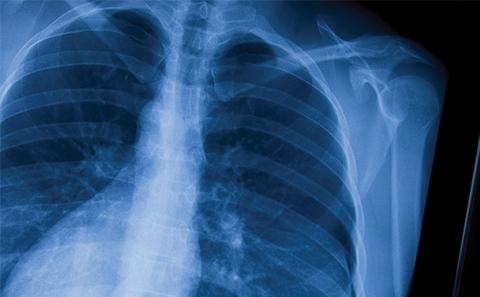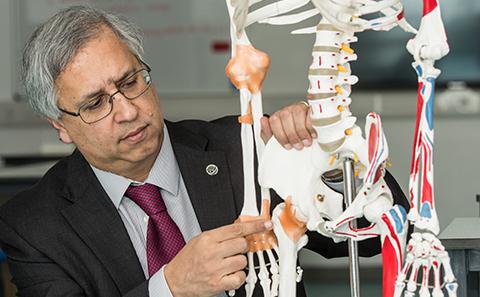Securing a healthy future with pre-conception interventions
Southampton is conducting pioneering research into the effect of nutrition before and during pregnancy on childhood obesity
Around one third of children between the ages of two and 15 are overweight, and this figure is rising as younger generations begin struggling with weight at an earlier age. Now considered an epidemic, childhood obesity is also triggering an increase in diabetes and other health conditions, shortening lives and costing the NHS more than £5bn each year.
At the forefront of international efforts to tackle this growing problem, researchers at the University of Southampton are leading a groundbreaking study to develop a new nutritional drink to reduce the chances of childhood obesity via intervention before and during pregnancy. Known as the NiPPeR (Nutritional Intervention Preconception and during Pregnancy to maintain healthy glucosE levels and offspRing health) study, the research is trialling the use of a combination of nutrients, vitamins and probiotics before and during pregnancy. The aim is to measure the impact of the nutritional drink on the health of mothers and babies, and ultimately assess its effect on each child’s weight.
The first of its kind
The NiPPeR study is the first of its kind, and combines the University’s expertise in the conduct of pre-conception studies with knowledge of epigenetics to provide unique insights into the benefits of nutritional intervention. The study is being led by Keith Godfrey, Professor of Epidemiology and Human Development at the University of Southampton and Nutrition Theme Lead for the National Institute for Health Research (NIHR) Southampton Biomedical Research Centre.
To fundamentally tackle and reverse the epidemic of childhood obesity – particularly at a time when an increasing proportion of mothers are overweight, obese or have gestational diabetes – there is a need for effective new interventions and we hope that NiPPeR is going to provide the first example of these.

Research by the University team suggests that high blood glucose levels during pregnancy, and deficiencies in nutrients such as Vitamin D and other vitamins, could have long-term consequences for the baby. This is becoming particularly problematic as an increasing number of pregnant women develop high glucose levels and even gestational diabetes. There is no known effective prevention during gestation, Keith says, and as such these issues require early intervention to protect the baby’s growth and development.
More than 480 mothers have been recruited for the study in and around Southampton, with an overall total of more than 1,700 recruited, including other sites in Singapore and New Zealand. Each mother is randomly assigned either a control supplement or a trial supplement. The control supplement contains a combination of vitamins and minerals generally recommended during pregnancy, while the trial supplement contains additional vitamins and minerals commonly found to be deficient during pregnancy, as well as probiotics and myo-inositol. According to Keith, this last ingredient acts to help glucose get into cells without relying on insulin receptors, which can be resistant during pregnancy and contribute to high glucose levels and risk of gestational diabetes.
Making a mark on how our genes work
The ingredients in the nutritional drink have been selected based on previous research conducted by the EpiGen Global Research Consortium, an international research network that encompasses the organisations involved in the study. This research has found that epigenetic marks – chemical changes on DNA that affect gene activation and development – retain a memory of nutritional exposures during pregnancy. By selecting ingredients that are beneficial during early development and aid maintenance of healthy glucose levels, the researchers hope the drink could have an impact into childhood and beyond. Some of the latest evidence provided by the group also suggests that childhood obesity largely originates in changes to the baby’s metabolism and appetite, both of which have been found to be set before birth through epigenetic marks.
These epigenetic processes seem to be set up very early in pregnancy, even around the time of conception. These sources of information have led us to, for the first time, go into a large-scale preconception trial with a nutritional supplement to try and maintain healthy glucose levels during pregnancy – and through that, to lessen the child’s risk of obesity.
Related Staff Member
You may be interested in:

Getting under the skin of allergies
Our researchers are leading the largest study of its kind to improve our understanding of allergies

Tackling public health challenges
Instigating step changes in public health, both in the UK and internationally.
